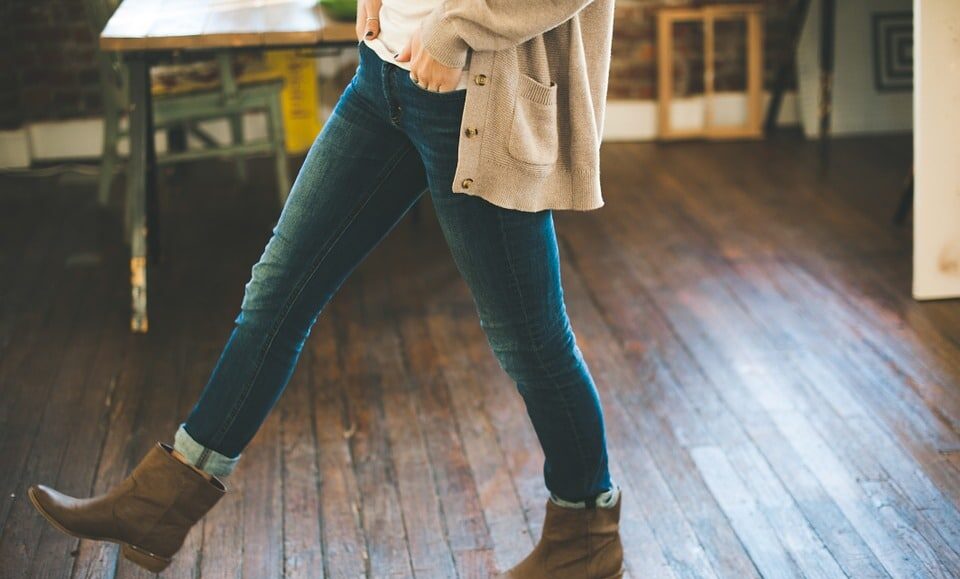Some people flip on the TV or climb on the treadmill when they get stressed. Others go shopping, draw a bath or rip open a bag of Oreos.
But I’ve found a different means of escape, and it’s about as plain and prosaic as a peanut butter sandwich. For me, relief from worry and care comes through the weathered wooden floors in my old Victorian house. Knotty and scarred, worn smooth by the decades, these old heart pine floors have saved my sanity quite a few times. And I’m sure—as sure as I am of anything in this stress-driven world—that they’ll do it again.
Take an example from the not-too-distant past. In February 2009, an airplane carrying 49 people crashed to the ground in a suburb near my home. It was a traumatic event and it stunned the community, not to mention the country.
As a journalist at the major metropolitan daily newspaper in our region, moments like these for me—and for my husband, who is also a reporter—aren’t just tragedies. They are calls to relentless, deadline-driven work. The two of us spent days and nights in the newsroom after the crash, writing stories about the disaster. By the end of those grueling shifts, we were spent.
We came home, and my husband went off to fix a snack. (We had been living on newsroom pizza.) But instead of sinking onto the couch, I headed straight for the basement—and the Murphy Oil Soap.
Wiping the wood floors in my house that night soothed my spirit and calmed my mind. Instead of seeing images of the downed plane on an endless loop in my mind, I saw the grain in antique pine planks, darkened by more than a century of steady use, some parts worn smooth as a cloister walk, other parts roughened and shrunk with age.
Instead of the smell of jet fuel, I inhaled the lemon-and-honey smell of oil soap, homey and innocent. That night I realized again what I already knew: Wiping down these old wooden boards with warm soapy water is an act of health and cleanliness, of organization and structure. It is a way to reclaim order and to reassert control in a world where those qualities can be difficult to find.
Work and Prayer
But floor work is also, for me, much more than that. It can be, in its very best moments, akin to prayer.
I mean that in the truest sense: as an act of devotion in which I am able, even for a short time, to block out the noise and stimulation of the outside world, and to shrink my gaze—and my thoughts—to the circle of pine planking within arm’s reach.
I center myself while I wipe those floorboards. I focus my thoughts, and oftentimes a decision or two comes to me in that time of concentration as well. Great monastics have taught for centuries that work can be prayer; that, in fact, it should be if we want to live in the world in the proper manner. The closest I’ve ever come to understanding what they mean is when I’m bent over a bucket, rinsing out my rag for another swipe. Ora et labora. Work and pray. Pray and work.
That may be why, when the worst happens in my life, I get down on my knees and push my plastic bucket along the floor, following behind it with a flannel rag.
The steady motion of my right hand—in and out, over and over with the grain of the wood—soothes me, and reassures that wild, ungovernable part of my mind that always tends to jump to worst-case scenarios and stay there.
In and out, in and out. The night after the plane went down. The day my grandmother died. The time I fought with my husband, panicked about a child’s illness, worried about a job or my bank account.
In and out, in and out. All will be well. All is well.
Putting Things Into Perspective
I realize that some people would find this odd, that I find more solace alone, with a rag in hand, than in a crowd of people at the shopping mall, coffeehouse or corner bar. I don’t know how to explain it. I only know that I emerge from these sessions feeling secure and mindful, as I inhale with gratitude the soapy smell pervading my rooms.
Maybe it has something to do with time and history: In wiping these boards, I remind myself of how many people (most of them women) have done just this act in the past, in good times and bad, in sickness and in health, with worry and in joy.
There’s nothing like living in an old house and noticing its details to remind you of how small just one person, and that person’s problems, can be when compared to the whole of human history. But old houses comfort you, too, by making you realize how intimately connected you are to all those who have come before you, and will come after.
In and out, with the grain. In the end, I suppose, it comes down to this: You can’t make the world do exactly what you want. We all wish that weren’t the case, but it is. Time passes. Mortality intrudes. Problems happen, and happen again.
But here’s something else that’s true: finding one small way—in your own house, in your own life—to come to terms with the unpredictability and sorrow that life invariably brings. That’s something to remember, and to return to. Because, no matter how unconventional it may seem, you don’t want to pass by any road that takes you to peace.
Even if it involves Murphy’s and a piece of old flannel.








